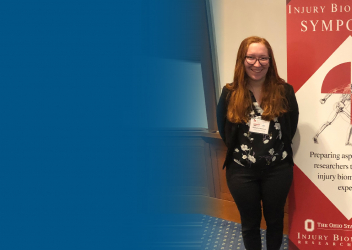Engineering Training
At CIRP, our biomedical engineers focus on collecting fundamental biomechanics data for children to determine their specific response and tolerance to traumatic loading environments and understand how engineering loading during injury events lead to structural injuries and physiological deficits. The engineering team also utilizes computational engineering – including an array of finite element (FE) models and rigid body models of the human body, ATDs, and vehicles – to understand complex physical and biological systems and their behaviors.
Students chosen to participate in the biomedical and computational engineering training programs at CIRP have conducted the following research:
- Age-based analyses of anthropometrics to guide development of pediatric surrogates such as crash test dummies
- Collection of kinematic data of pediatric human volunteers subject to sub-injurious loading conditions
- Incorporation of biomechanics data into computational models of children
Watch this video to learn about how CIRP engineers are using computational modeling in child occupant protection research:
Learn More
- Student Responsibilities for CIRP's Engineering Training Program
- Attend weekly Engineering Investigator meetings
- Attend regular mentorship meetings (as agreed upon with supervisor)
- Conduct aspects of data analyses for selected projects
- Present findings of research activities to the Engineering team or to CIRP as a whole
- Assist in the submission and maintenance of Institutional Review Board (IRB) Protocols for selected projects
- Fulfill other assigned responsibilities as appropriate
- Necessary Qualifications for Students in CIRP's Engineering Training Program
- Students must be enrolled in or have completed an undergraduate or graduate training program.
- Typical student majors include Bioengineering and Mechanical Engineering.
- Medical fellows interested in Biomechanics may be appropriate.
- Though not required, knowledge of Matlab and Microsoft Excel is highly preferred.
Watch this video about student training at the Center for Child Injury Prevention Studies (CChIPS):
Contact Carol Murray, MSS, MLSP, training manager, for more information on CIRP’s Engineering Training Program.













